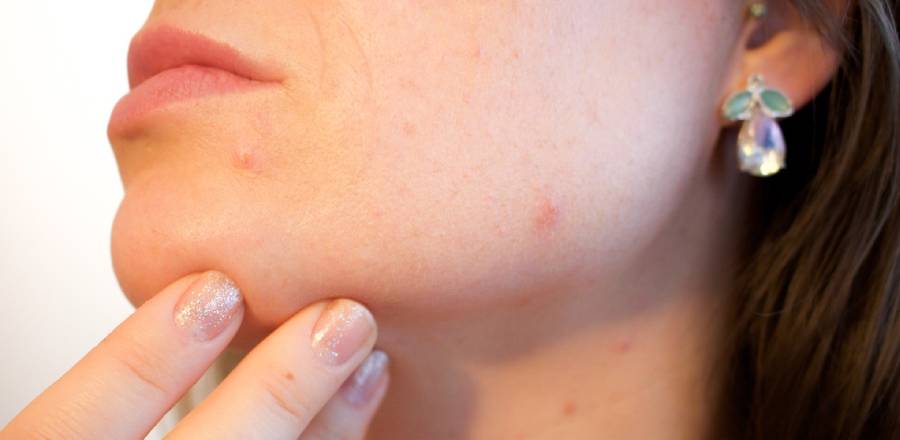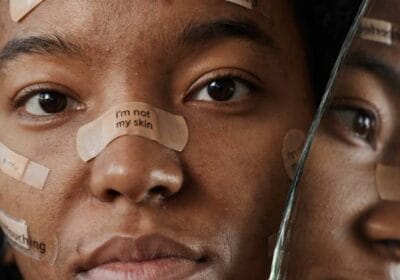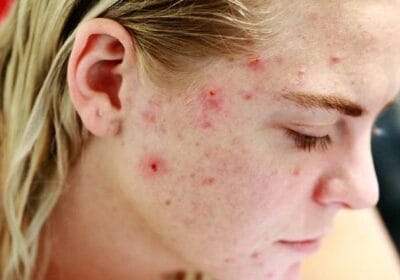The decision to use birth control is a personal one, and there are many options available to women. One popular form of birth control is the intrauterine device (IUD). An IUD is a small, T-shaped device that is inserted into the uterus to prevent pregnancy. While IUDs are a highly effective form of birth control, many women wonder whether getting an IUD can make their acne worse. In this article, we’ll explore the link between IUDs and acne and provide you with tips for managing any potential breakouts.
Can Getting An IUD Make Your Acne Worse? Understanding the Link:
There are two types of IUDs: hormonal and non-hormonal. Hormonal IUDs contain progestin, a synthetic form of the hormone progesterone, which thickens cervical mucus to prevent sperm from reaching the egg. Hormonal IUDs can also suppress ovulation, making them more effective than non-hormonal IUDs. Non-hormonal IUDs, on the other hand, are made of copper and work by releasing copper ions into the uterus, which are toxic to sperm.
So, can getting an IUD make your acne worse? The answer is, it depends. Hormonal IUDs, like other forms of hormonal birth control, can affect your skin. The progestin in hormonal IUDs can cause an increase in sebum production, which can lead to clogged pores and acne. Non-hormonal IUDs, on the other hand, do not contain hormones and are unlikely to cause acne.
Managing Acne with an IUD:
If you’re concerned about acne with an IUD, there are several steps you can take to manage any potential breakouts:
- Keep Your Skin Clean: It’s important to keep your skin clean to prevent clogged pores. Wash your face twice a day with a gentle cleanser and use a non-comedogenic moisturizer to keep your skin hydrated.
- Use Acne Medication: Over-the-counter acne medication can help to clear up breakouts. Look for products that contain benzoyl peroxide or salicylic acid, which can help to unclog pores and reduce inflammation.
- Consider Switching to a Non-Hormonal IUD: If you’re experiencing acne with a hormonal IUD, you may want to consider switching to a non-hormonal IUD. While non-hormonal IUDs are less effective than hormonal IUDs, they are still a highly effective form of birth control.
FAQs:
Q: Can getting an IUD make your acne worse? A: Hormonal IUDs can increase sebum production, which can lead to clogged pores and acne.
Q: Do non-hormonal IUDs cause acne? A: Non-hormonal IUDs do not contain hormones and are unlikely to cause acne.
Q: What can I do if I’m experiencing acne with an IUD? A: You can keep your skin clean, use acne medication, or consider switching to a non-hormonal IUD.
Conclusion:
If you’re considering getting an IUD but are worried about how it could affect your skin, it’s important to know that hormonal IUDs can increase sebum production and lead to acne. However, there are steps you can take to manage any potential breakouts, such as keeping your skin clean, using acne medication, or considering switching to a non-hormonal IUD. It’s important to remember that everyone’s body is different, and while some women may experience acne with an IUD, others may not. If you’re concerned about the potential side effects of an IUD, speak with your healthcare provider to discuss your options.
Remember that birth control is a personal choice, and it’s important to choose a method that works best for you and your body. While acne may be a concern for some women, it’s just one of many factors to consider when choosing an IUD. With the right care and management, acne with an IUD can be effectively controlled, allowing you to enjoy the benefits of this highly effective form of birth control.



